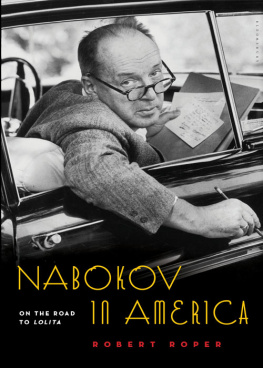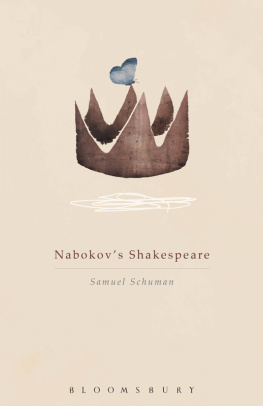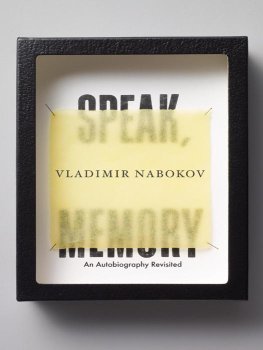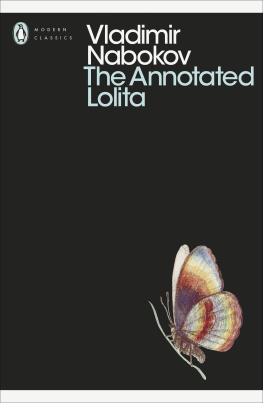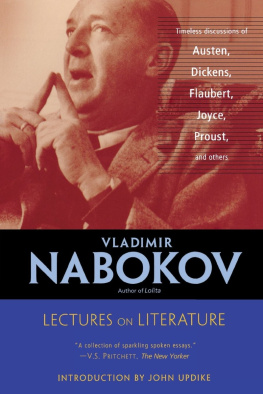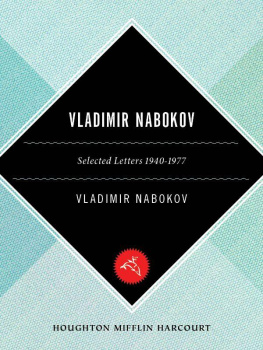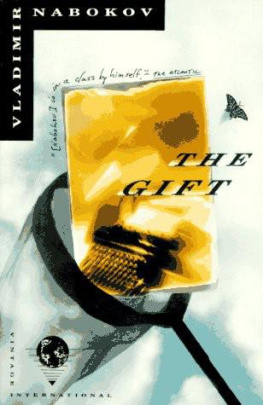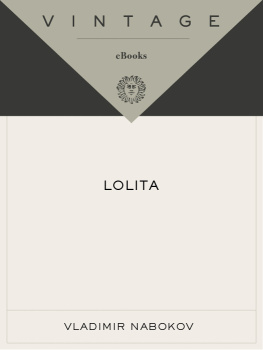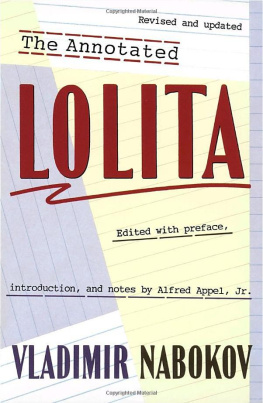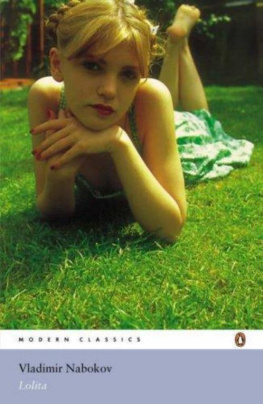For Bill Pearson of Mississippi:
in whom the literature
enduringly dwells

CONTENTS
The per day, he writes in a letter mailed around July 15, 1943, wearing only shorts and tennis shoes always a cold wind blowing in this particular caon. Dmitri has a great time catching butterflies and gophers and building dams.
The Allies have landed in Sicily. Himmler has ordered the liquidation of the Polish ghettos. The writer Vladimir Nabokov, meanwhile, concerns himself with Lycaeides melissa annetta , a pretty little shimmery butterfly. He finds of the Little Cottonwood River, between 8,5009,000 ft. alt . its habitat characterized by clumps of Douglas fir, ant-heaps and an abundant growth of Lupinus parviflorus Nuttall, a pale local lupine.
The novelist out chasing insectsthe signature image of Nabokov in Americacame to beguile millions. A and shirt was how a local teenager, John Downey, saw him that summer when he encountered Nabokov on the Cottonwood Canyon road. He was dang near nude, and when Downey asked the stranger what he was up to, Nabokov refused to explain at first.
He was forty-four. That November he would have his two front teeth removed, the rest soon following. (went with the territory. His wife, Vra Evseevna, worked odd jobs to help support them, and neither of them had ever been much for cooking or packing on the pounds.
The Nabokovs had been through the historical wringer. They were Zelig-like figures of twentieth-century catastrophe, dispossessed of their native Russia by the Bolsheviks, hairs-breadth escapees of the Nazis in Berlin and Paris, little people with a monstrous evil breathing down their necks. Had they been in Russia that summer of 43, they might have been among the thousands starving to death during the Siege of Leningrad, the most murderous blockade in world history; , which theyd escaped at the last moment, on the last French ship for New York, Vra, who was Jewish, and their young son would likely have been destined for Drancy, the French internment camp that fed Auschwitz-Birkenau.
Instead, melissa annetta . Days of hiking in the sun. In Utah there was no cholera, nor was there mass starvation. Although a first impression is of a delicious absurditythe supercilious Nabokov among the marmots and Mormonsthe outdoors had always thrilled him, and America had beckoned to him all his life. He was unlike other desperate European immigrants of the war years, who tended to huddle in anxious enclaves in New York (unless they were artists with connections, in which case they headed straight for Hollywood). Saul Steinbergs 1976 map of the United States, showing the three thousand miles between the Hudson and the Pacific as a tan patch with rocks, surely resembles the mental maps of many migrs. Out west were the uncultured, the isolationist, the anti-Semitic, the proto-fascist. The stories of American boorishness and proud ignorance, which fed enduring suspicions of American society, were the common inheritance of many educated Europeans. Nabokov knew all that, and he yielded to no man in his savoring of American foolishness. That he, the beneficiary of a superb Old World education, fluent on the most rarefied levels in three languages, the creation, culturally and intellectually, of doting, brilliant parents with advanced ideas and money, should have found himself among the cowboys and religious lunatics was surely a joke of fate.
Invited to teach for a summer at Stanford, he did not hurry cross-country by train but instead took nineteen leisurely days, chauffeured across by an American friend with a Pontiac. The journey was trip across several states (all of them beauties) I frantically collected butterflies.
In his forties Nabokov was still stubbornly youthful. Despite the dentures and the tubercular look, he was physically vigorous, youthful also in the sense of being deeply enamored of himself, like an eight-year-old who scribbles his name over and over on a schoolbook page. This egoistic vitality, which others often found hard to take, helps explain a strange fact in his rsum. During his twenty years in America, he traveled upward of 200,000 miles by car, much of it in the high-mountain West, on vacations organized around insect collecting. Vra and Dmitri were swept along in this outdoor enthusiasm; they were good sports about it, although Dmitri, as he got older, took care never to be seen in public waving a net. (No photos of him so equipped survive beyond age seven.)
Two hundred thousand miles by car. Divide this total by thirteen, the number of years in which the family took wide-ranging trips, adjust for Vra doing all the driving (until Dmitri was old enough to spell her), factor in Vladimir in the passenger seat checking maps or making the odd note on a four-by-six card, and you arrive at something like a coefficient of deep happiness. The Nabokovs got along, and their days were blessed with a simple purpose: they got here from there , staying at motor courts that cost a dollar or two a night, in towns so patly, Americanly themselves that a visitor had to smile. Nabokovs descriptions of these trips, in letters to Wilson and others, are glowing but reticent. He talks about getting a tan, about the specimens hes finding, and leaves it at that. Deep happiness does not conduce to writing about itself. Meanwhile, he pursued other matters: the composition of parts of several books, among them the biography Nikolai Gogol , the memoir Conclusive Evidence (later called Speak, Memory ), the novels Lolita , Pnin , and Pale Fire , and his multivolume annotated translation of Pushkins novel-in-verse Eugene Onegin . He was a professional, always with projects in the works, and why not write while on the road? Writing was another pleasure.
In these postwar years, the nation as a whole was enamored of the West, seeking reflections of itself in tales of cowpokes and pioneers. Western movies had long been popular, but now they were over the moon. The car vacation achieved a sort of consummation in the same period, and the motor court (or, to use the racy new parlance, the motel ) was becoming ubiquitous. New roads were being built and old ones resurfaced; the Interstate Highway System, begun in 56, at its completion the largest public works project in the history of the world, was but the capstone of a phenomenal outburst of American grading and paving. The cars of the fifties were better, people had money in their pockets, the United States had just won the big war: what better time to drive to Yellowstone?
American Literaturea second-rate affair in Nabokovs eyes, although not without interestreflected all this vagabonding. There is a countercurrent in our homegrown literature, one that runs athwart the mainstream of worthy novels of social complexityworks by Hawthorne, Howells, James, Cather, Dreiser, et al.and in the period of Nabokovs emergence this countercurrent became reinvigorated. The tradition went back to Walt Whitman, Walt being the Mother Poet of us all, the first American writer to put on slouch hat and sturdy boots and set forth on the open road, in self-conscious impersonation of a vagabond. Henry Miller, a connoisseur not of American locales but of seedy European ones, set forth in the 1930s. The Beats also were wandering and feverishly writing just as Nabokov, fresh off the boat, with his high-modernist bona fides proudly on display, slipped quietly into the American stream.
Yet another part of our home traditionour rough collection of amusing tall tales, with a few works of unaccountable brilliance glittering among the drossalso gathers in Nabokov. This is that part that begins with Captain John Smith and continues through William Bartram and Hector St. John de Crvecoeur to Audubon, Emerson, Thoreau, John Muir, John Burroughs, and many modern practitioners, the tradition of itinerant semi-scientific naturalists. Possibly the most revealing resemblance to which Nabokov, who hated to be compared to anyone , can be recruited is to Muir, the father of American conservation, whose breakthrough reimagining of how glaciers shape landscapes predicts Nabokovs splendid scientific reordering of the Polyommatini, the tribe of Blue butterflies. of forests and meadows in what he came to call his native West finds an answer in Muirs thousands of miles walked hither and thither. Both loved the high-mountain zones best. Both were Darwinists who dissented from orthodoxy, sounding like mystical intelligent-designers at times. Muir was probably the last orthodox Transcendentalist, believing, as Emerson had taught him, that every natural fact is a symbol of some spiritual fact; Nabokov, too, was spiritualistic, in part a believer in ghostly forces that infiltrate our fallen mundane world.
Next page
